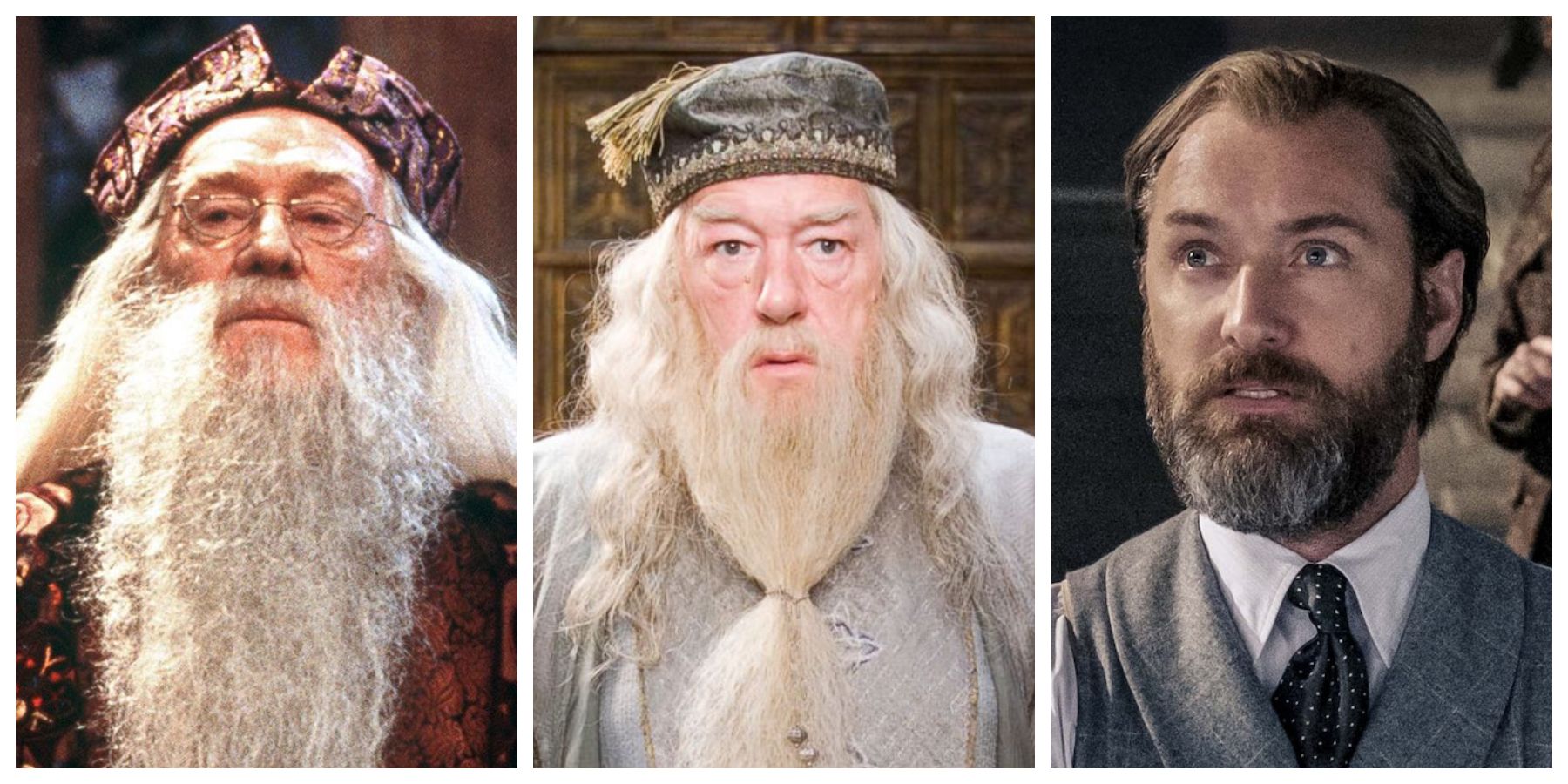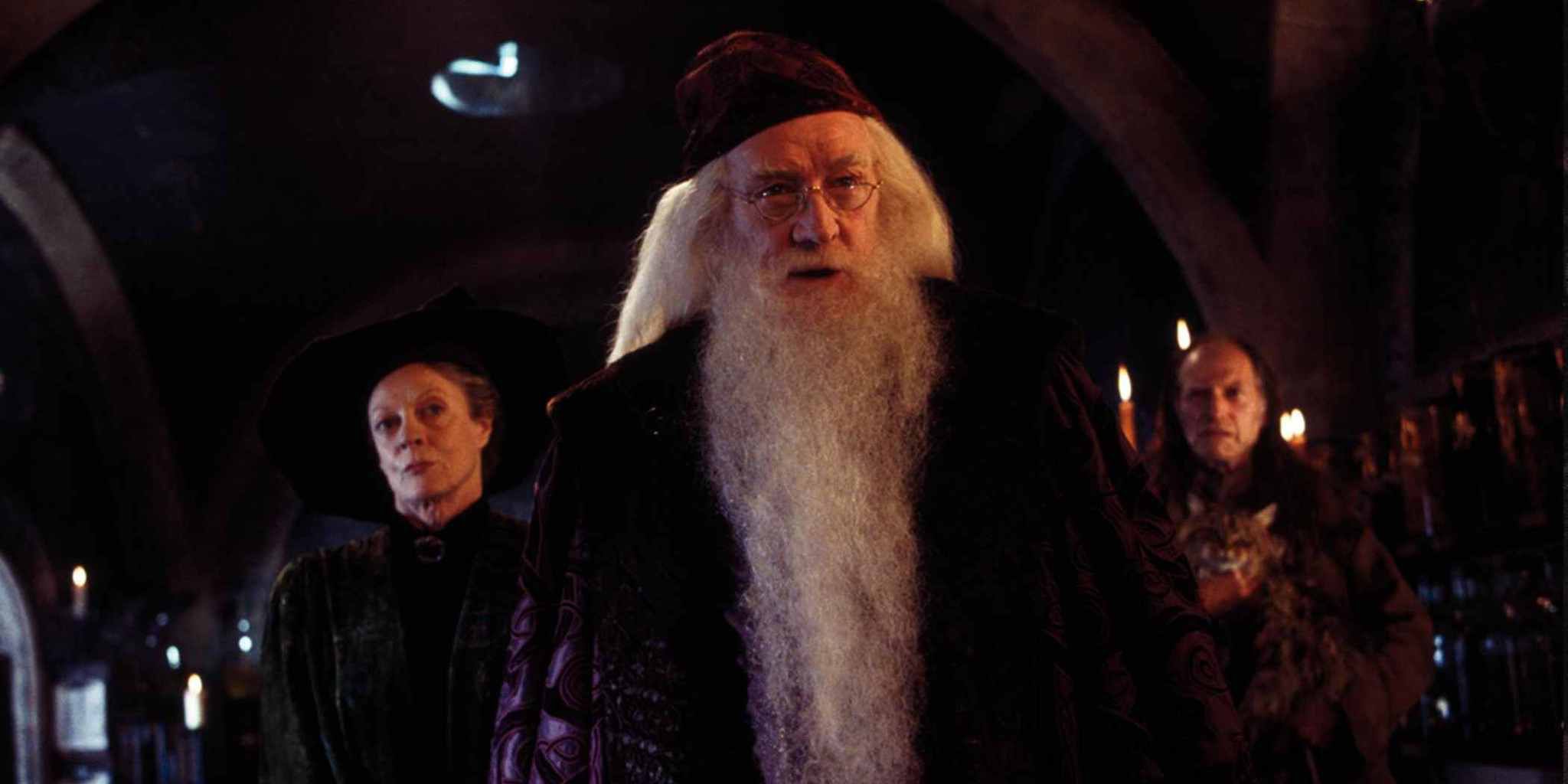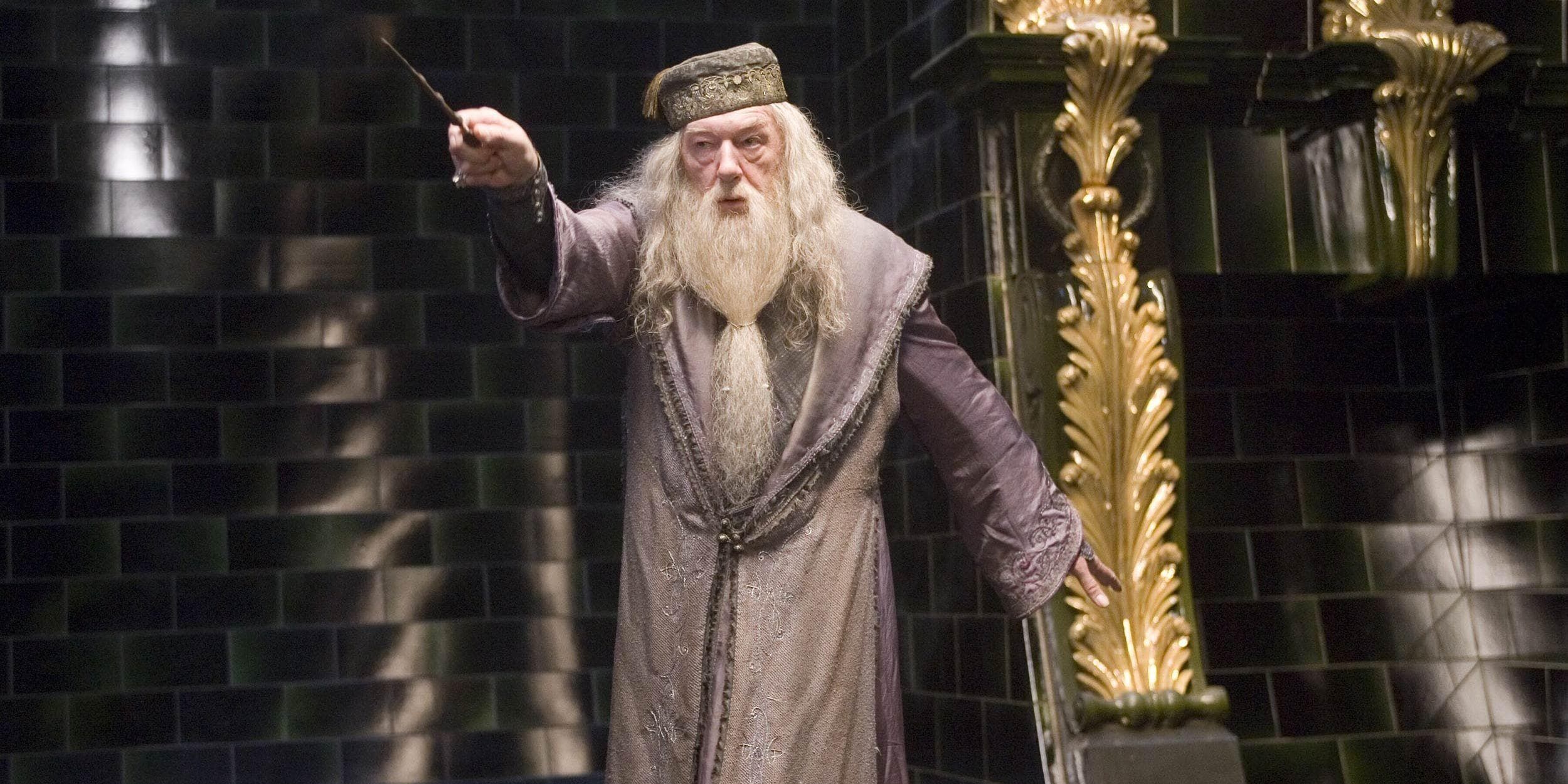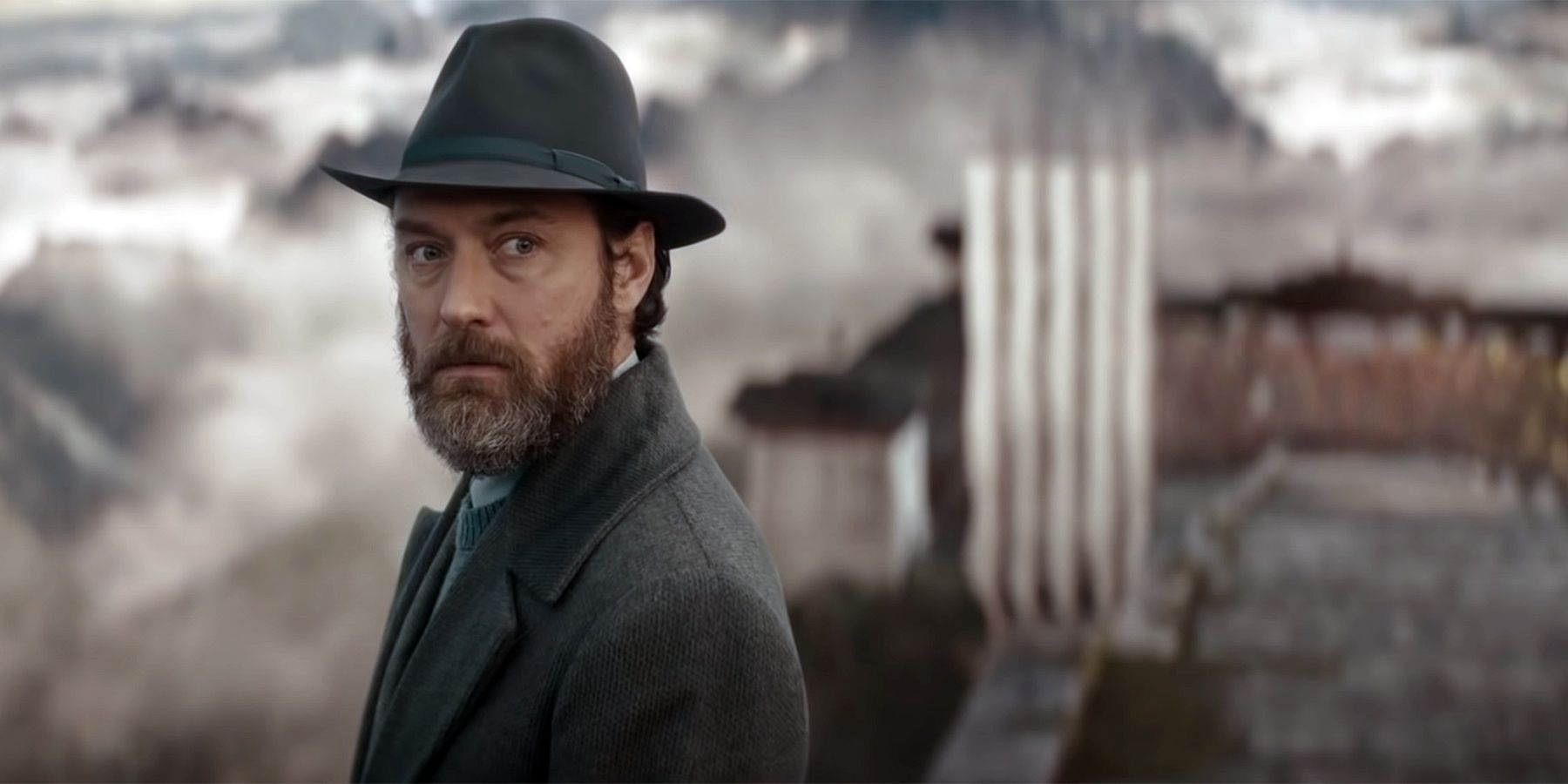J. K. Rowling once revealed that she chose the name ‘Dumbledore’ because it is an Old English word for ‘bumblebee’ and she always imagined him “humming to himself a lot” — which pretty much sums up the entire character. As the headmaster of Hogwarts, the humorously eccentric Albus Dumbledore is described as one of the most powerful wizards in the Harry Potter franchise, who often makes difficult sacrifices for the “greater good”.
In the first two movies, he was originally played by the legendary Richard Harris until his death in 2002, after which the distinguished actor Michael Gambon played the role in the remaining six films. In the Fantastic Beasts trilogy, Jude Law portrayed a much younger Dumbledore, during the period of his life when is attempting to thwart the ambitious plans of his former friend and the dark wizard, Gellert Grindelwald. This, of course, has sparked the inevitable debate among fans: who played Dumbledore best?
Richard Harris
Harris had once revealed that, during the casting process for Harry Potter, he had turned down the role of Dumbledore three times as he did not want to commit to an entire series at the age of 71. It was when his 11-year-old granddaughter Ella changed his mind (by telling him that she will never speak to him again if he refused) that he finally accepted.
Although he did not get enough screen time in the movies, making him more of a bystander than a pivotal character, his portrayal of Dumbledore was more faithful to the book version than any other actor’s. With his reserved manner, stoic presence, and soft-spoken nature, he brilliantly exemplified the quiet wisdom of the character — to the point that he actually seemed like he was over a hundred years old.
The first two Harry Potter films have a much lighter tone in comparison to the later installments, and required Dumbledore to be much warmer to the young students. Harris managed to do just that with his gentle aura, while still exuding power. His childlike wonder and nurturing persona allowed both Harry and the viewers to trust him.
Even though Dumbledore is evidently a complex character, Harris did not hint at the dark secrets that burden him, upon which the fate of the wizarding world depends. Instead, he was a force of positivity, providing guidance to the central character for whatever awaits him in the future.
Harris tragically passed away after the filming of Harry Potter and the Chamber of Secrets was completed. When he was originally hospitalized, he had told the director Chris Columbus that he would kill him if he recast the role. He went on to leave a lasting impression on the viewers, majority of whom still believe to this day that he was undoubtedly the best Dumbledore.
Michael Gambon
Gambon certainly had big shoes to fill, but the stark difference between his and Harris’ portrayal allowed him to make Dumbledore uniquely his own while still staying true to the character. He once stated in an interview that he did not read any of the Harry Potter books to prepare for his role because he felt that would restrict his performance — which can be one of the reasons why he was successfully able to bring his own spin to the character.
Harry Potter and the Prisoner of Azkaban, Gambon’s first movie in the series, marked a noticeable change in tone. It was also when Dumbledore’s presence is felt more throughout, even if he is not on the screen. The director wanted to shift away from Harris’ version to a more serious and “distracted” Dumbledore — reflecting the gradual change in the overarching themes of the films. Even his appearance was gruffer and shabbier than his predecessor’s. The heavy, thick robes were replaced with neutral-colored robes tied around the waist, together with a tasseled hat instead of the usual pointed one. Gambon’s melodious tone also seemed to express that side of Dumbledore who speaks in riddles and rhymes.
This transformation was intentional. Rowling described Dumbledore as being “sprightly” and with “great energy” in the books — and that is exactly what Gambon brought to the screen. Harris was restrained, seeming more like a mythic figure to the young Harry. In contrast, Gambon’s attitude allowed Dumbledore to engage with the now older characters and, thus, prepare them for what lies ahead. With the stakes getting higher with each movie, he became the Dumbledore that was needed for the war. He demonstrated the magical prowess of the character, proving that he really was the only wizard who Voldemort feared, and not just the kindly headmaster who was seen earlier.
He also hinted at his own troubled past, making him more relatable to the viewers. Gambon portrayed a vulnerable Dumbledore who also made mistakes and had regrets — admittedly though, he had more material to work with as opposed to Harris to be able to show this realistic version of the character. It is only debatable whether Harris could have depicted everything that Dumbledore truly was.
Most fans have often argued that Gambon had failed to understand the character, pointing to one particular scene in Harry Potter and the Goblet of Fire as proof. While the book described Dumbledore to be calm when Harry’s name is pulled from the Triwizard Cup, Gambon stormed towards Harry in the movie and grabbed him for questioning. While this received much criticism, the audience seems to have forgotten the moment when Harris had also deviated from Dumbledore’s calm persona: in Harry Potter and the Sorcerer’s Stone, when the news of a troll breaking into the castle caused panic in the Great Hall, Harris bellowed to get the students to calm down — which is not how it was described in the book.
The fans’ resistance to Gambon’s less-controlled version of Dumbledore can also be thought of as a reflection of Harry’s own changing feelings towards him when he realizes that he is not the infallible ideal he thought him to be.
Jude Law
As Law played a youthful Dumbledore in Fantastic Beasts, his version was drastically different from the previous ones. Complete in tailored suits and the occasional top hat, he believed that it was important to break away from the older image as Dumbledore was not that man yet at this point in time; he was still confronting the demons from his past.
Rowling’s revelation of Dumbledore being gay also came after the release of the Harry Potter films, so this adaptation allowed Law to touch upon that aspect of the character with an emotional vulnerability that was never shown before.
With Dumbledore being one of the most complicated characters in the series, each actor had his own unique approach of translating it on screen. While Harris’ interpretation closely matched the original in the books, there is no doubt that all actors managed to popularize the character for different reasons.




